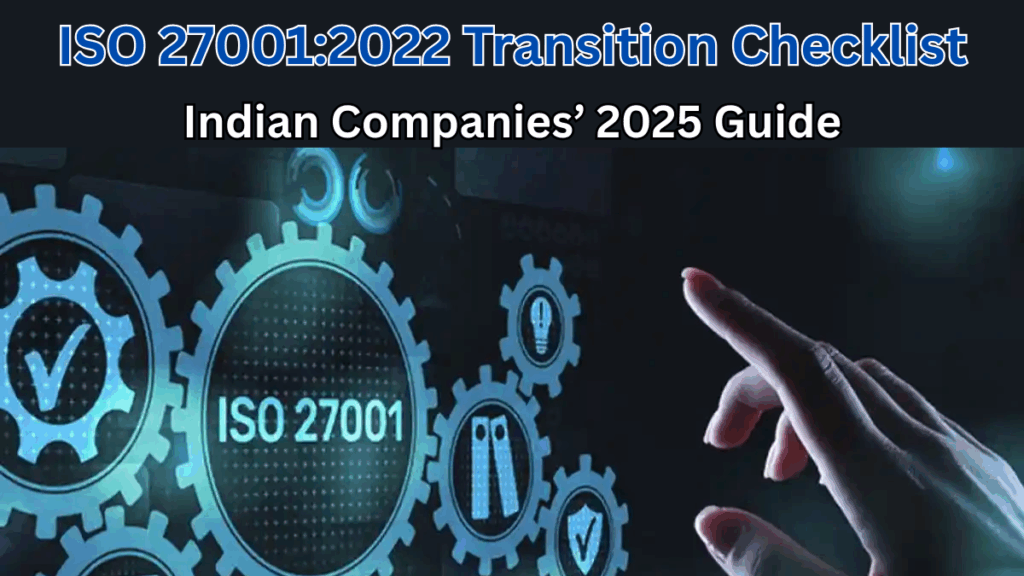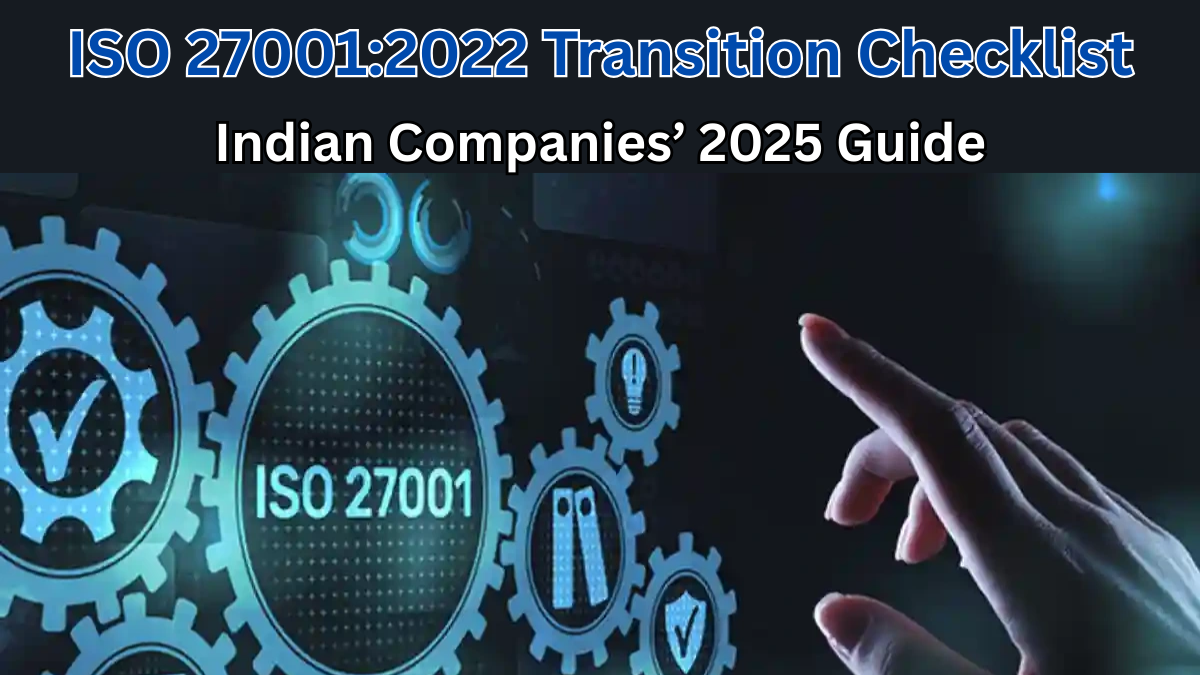As cybersecurity threats grow, Indian companies are focusing on stronger security frameworks to protect their information. ISO 27001:2022 provides a robust standard for information security management, and transitioning smoothly is essential for continued compliance. This guide simplifies the ISO 27001:2022 Transition India 2025 process with a practical compliance checklist for Indian businesses.

Why Indian Companies Need ISO 27001:2022 Transition in 2025
Updating to ISO 27001:2022 ensures your organization:
-
Meets latest security standards.
-
Reduces information security risks.
-
Demonstrates credibility to clients and stakeholders.
-
Aligns with international best practices.
For Indian companies, this transition is not just a formality—it’s a strategic move to strengthen data protection and regulatory compliance in 2025.
Key Steps in the ISO 27001:2022 Transition India 2025
The transition from ISO 27001:2013 to 2022 may seem daunting, but breaking it into clear steps can simplify the process:
1. Gap Analysis
-
Identify differences between your current ISMS and ISO 27001:2022 requirements.
-
Highlight areas needing updates in policies, procedures, and documentation.
2. Management Buy-In
-
Ensure leadership support for resource allocation.
-
Communicate the benefits of the updated standard across teams.
3. Update ISMS Documentation
-
Revise information security policies, risk assessments, and controls.
-
Document new processes as per ISO 27001:2022 guidelines.
4. Employee Training
-
Conduct awareness sessions on new standards and responsibilities.
-
Promote a security-conscious culture within the organization.
5. Internal Audit & Corrective Actions
-
Audit the updated ISMS to identify gaps.
-
Implement corrective actions before the certification audit.
6. Certification Audit
-
Engage accredited auditors for a smooth transition.
-
Achieve ISO 27001:2022 certification with minimal disruption.
ISO 27001:2022 Compliance Checklist for Indian Companies
Here’s a practical checklist to help your business stay on track:
| Task | Status | Notes |
|---|---|---|
| Conduct gap analysis | ☐ | Compare current ISMS with 2022 version |
| Update policies & procedures | ☐ | Include new control requirements |
| Risk assessment revision | ☐ | Ensure alignment with updated risks |
| Employee training sessions | ☐ | Document attendance & feedback |
| Internal audit | ☐ | Address non-conformities |
| Certification readiness | ☐ | Schedule with accredited body |
Common Challenges During Transition
-
Misalignment between old policies and updated controls.
-
Lack of employee awareness on the revised standards.
-
Inadequate documentation of new ISMS processes.
-
Limited resources for implementing additional security measures.
Benefits of ISO 27001:2022 Compliance for Indian Companies
-
Enhanced Security Posture: Minimize breaches and data leaks.
-
Regulatory Readiness: Meet national and international compliance standards.
-
Client Trust: Demonstrate commitment to safeguarding sensitive information.
-
Operational Efficiency: Streamlined ISMS processes with clear roles and responsibilities.
FAQs
1. What is the timeline for ISO 27001:2022 transition in India 2025?
Organizations typically have 12–18 months to complete the transition from ISO 27001:2013 to 2022.
2. Is employee training mandatory for ISO 27001:2022 compliance?
Yes, training is essential to ensure staff understand updated controls and responsibilities.
3. Can small Indian companies also achieve ISO 27001:2022 certification?
Absolutely. The standard is scalable and applicable to organizations of all sizes.
4. How often should internal audits be conducted post-transition?
Internal audits should be conducted at least annually, or more frequently if required by business processes or regulatory needs.
Click here to learn more
